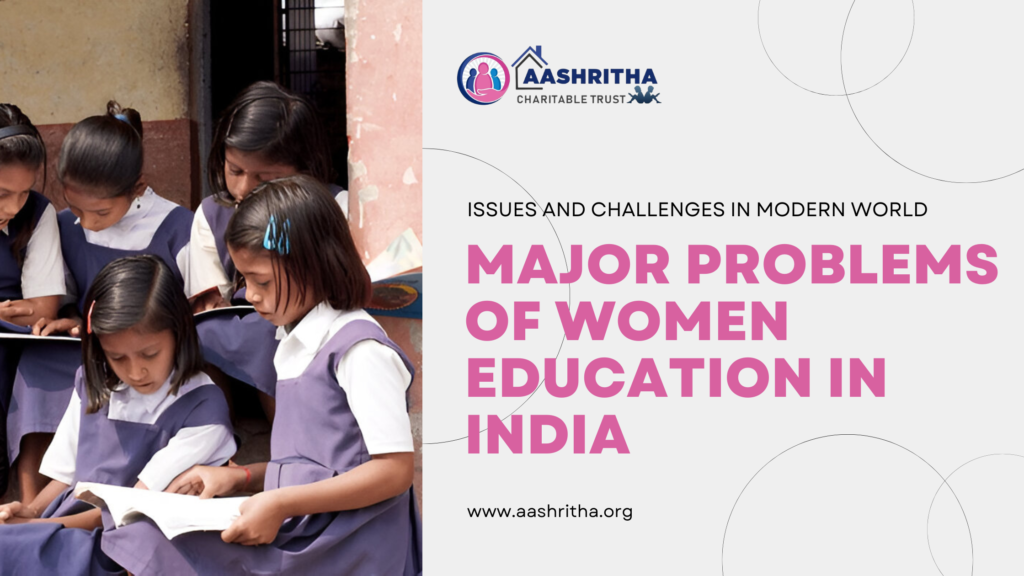Education is among the most effective tools for empowerment and a significant instrument for the economic growth of any nation. However in India female education typically has faced numerous challenges. Despite government initiatives and a great deal of improvement over time gender differences in education remain rural and marginalised. Such challenges should be overcome for gender equality and for females to have a position to contribute to national development. The key issues of women in education in India and systemic barriers and solutions are discussed.
Importance of Women’s Education
Women’s education is needed for personal empowerment and also for the improvement of society. A well-educated woman contributes to the health, economic stability and education of her community and family. Beneficial effects of women’s education include:
- Economic Empowerment: Educated females tend to be more apt to get employed and attain financial independence.
- Better Health: Educated females tend to be better positioned to make sound choices regarding their families and health.
- Child Mortality Reduction: Studies link women’s education with lower child mortality.
- Social Empowerment: Education allows females to break down stereotypes and defend their rights.
What Are the Major Problems of Women’s Education in India?
Despite these advantages, many obstacles prevent women from getting quality education in India.
1. Gender Stereotypes & Cultural Norms
Segregated cultural norms and gender stereotypes continue to be barriers to women’s education. Traditional mindsets in much of India, especially in the rural areas, place a girl’s job as a homemaker above her right to education. Families might think that investing in a daughter’s education is unnecessary since she’ll eventually marry and settle in her husband’s household.
Impact: Early marriages and household responsibilities often interrupt girls’ education. Lack of family support discourages many girls from higher studies.
2. Poverty
A major factor affecting women’s education in India is poverty. Families with limited resources often seek the education of male children as they believe they will contribute financially in the future.
Impact: Girls from economically disadvantaged families leave school to work for the household income or to provide for siblings. Limited financial resources cause poor access to quality schools, uniforms, books and tuition.
3. Infrastructure Lack
Inadequate infrastructure in schools affects disproportionately female students. Distinctions like the lack of girls’ separate toilets, unsafe transport and poor school facilities prevent families from sending their daughters to school.
Impact: Adolescent girls often drop out of school because they lack personal and hygiene facilities, especially during menstruation. Unsafe school environments expose girls to harassment and abuse and discourage parents from educating girls.
4. Child Marriages
Child marriage remains widespread in a lot of parts of India such as in the rural areas despite legal restrictions. Early marriage leads girls to abandon their education for domestic work.
Impact: Child marriage restricts girls ‘potential to learn, develop skills and become independent. It creates cycles of illiteracy and poverty because these women are not as likely to educate their children.
5. Gender-Based Violence
Gender-based violence such as abuse and harassment at and around schools is an important obstacle to female education. Fear of such violence often prompts families to drop their daughters from school.
Impact: Unsafe school environments create psychological trauma and interfere with learning. Girls in violence-prone areas are less likely to finish their education.
6. Social Taboos & Menstrual Hygiene
Menstruation remains a taboo subject in most of India. The absence of awareness, resources and sanitation facilities during menstruation contributes to absenteeism among female students.
Impact: Many girls miss school during their periods. Health and stigma associated with inadequate menstrual hygiene education discourage girls from attending school.
7. Limited Access to Higher Education
Even if girls complete secondary and primary education, access to higher education remains a challenge. Financial constraints, societal expectations and the lack of nearby colleges keep many young women from furthering their studies.
Impact: Women’s participation in professional and technical fields remains low. The gender gap in higher education widens, limiting women’s leadership potential.
8. Digital Divide
The COVID-19 pandemic illustrated the digital divide in education disproportionately affecting girls. Many low-resource families gave male children access to smartphones or computers while girls lacked online learning tools.
Impact: Girls in remote areas lost learning time during school closures. Insufficient digital literacy further marginalises women in an increasingly tech-driven world.
9. Insufficient Government Support and Policy Implementation
Though many government schemes and policies promote women’s education, their implementation and awareness are poor. Programs like Beti Bachao Beti Padhao and Kasturba Gandhi Balika Vidyalaya have some success but are not reaching the most disadvantaged.
Impact: Gaps in policy execution leave many girls without education. Inconsistent monitoring and accountability undermine progress.
10. Societal Pressure and Role Model Dearth
Societal expectations often discourage women from studying or working, particularly in male-dominated fields. The absence of visible female role models in leadership positions reinforces traditional gender roles.
Impact: Girls are less inspired to pursue higher education or career advancement. Their ambitions are limited by a lack of encouragement from society and peers.
Overcoming the Challenges of Women’s Education
Addressing the barriers to women’s education in India requires a multidimensional approach:
- Increasing Awareness: Conduct community programs that challenge stereotypes and emphasise women’s education.
- Strengthening Policies: Make effective use of existing schemes and introduce specific incentives for girls’ education.
- Improved Infrastructure: Build adequate safe hygienic schools with adequate facilities, especially in the countryside.
- Defeating Child Marriage: Strengthen enforcement of laws against child marriage and create alternative opportunities for young girls.
- Promoting Digital Inclusion: Offer digital tools and literacy programs at affordable prices to girls in underserved areas.
- Role Models to Encourage: Highlight successful women in different fields to encourage young girls and break down societal barriers.
Donate & Empower Women’s Education:
Women’s education is a right and a cornerstone for a progressive society. Regardless of the initiatives of India to promote gender equality in educational institutions, numerous obstacles hinder its success. Governments, individuals and communities must work in concert to get over these barriers. Overcoming these barriers will enable India to unleash the potential of its women and realise its dream of a just and prosperous future.
Your contribution can change the lives of girls pursuing education. Support scholarships, building better school facilities and gender equality in education. Donate with Aashritha Charitable Trust today to create a future for the women of tomorrow. Together we can change lives one girl at a time.
Also Read: Top 10 Rights of Child in India





